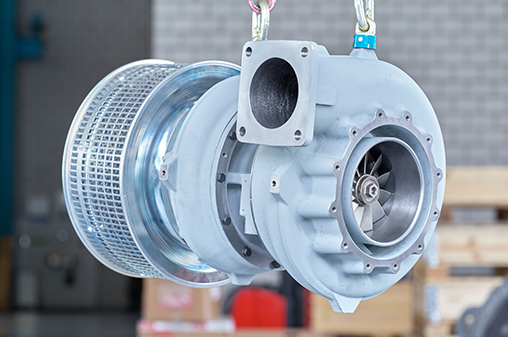The Main Reason For Turbocharger Damage
2021-07-26
Most of the turbocharger failures are caused by improper operation and maintenance methods. Vehicles work under different geographical and climatic conditions, and the working environment of the turbocharger is quite different. If it is not used and maintained correctly, it is very easy to cause damage to the abandoned turbocharger.

1. Insufficient oil power and flow rate caused the turbocharger to burn out instantaneously. When the diesel engine is just started, it will work at a high load and high speed, which will cause insufficient oil or oil supply lag, resulting in: ① insufficient oil supply for the turbocharger journal and thrust bearing; ②for the rotor journal and bearing There is insufficient oil for the journal to keep floating; ③The oil is not supplied to the bearings in time when the turbocharger is already operating at odd speeds. Due to insufficient lubrication between the moving pairs, when the turbocharger rotates at a high speed, the turbocharger bearings will burn out even for a few seconds.
2. Engine oil deterioration causes poor lubrication. Inappropriate selection of engine oils, mixing of different engine oils, leakage of cooling water into the engine oil pool, failure to replace engine oil in time, damage to the oil and gas separator, etc., can cause engine oil to oxidize and deteriorate to form sludge deposits. The oil sludge is thrown onto the inner wall of the reactor shell along with the rotation of the compressor turbine. When it accumulates to a certain extent, it will seriously affect the oil return of the bearing neck of the turbine end. In addition, the sludge is baked into super hard gelatinous by the high temperature from the exhaust gas. After the gelatinous flakes are peeled off, abrasives will be formed, which will cause more severe wear on the turbine end bearings and journals.
3. External debris is sucked into the intake or exhaust system of the diesel engine to damage the impeller. • The speed of the turbine and compressor impellers of the turbocharger can reach more than 100,000 revolutions per minute. When foreign matter intrudes into the intake and exhaust systems of the diesel engine, severe rain will damage the impeller. Small debris will erode the impeller and change the air guide angle of the blade; large debris will cause the impeller blade to rupture or break. Generally, as long as foreign matter enters the compressor, damage to the compressor wheel is equivalent to damage to the entire turbocharger. Therefore, when maintaining the turbocharger, the filter element of the air filter must be replaced at the same time, otherwise, the metal sheet in the filter element may also fall off and damage the new turbocharger.
4. The oil is too dirty and debris enters the lubrication system. If the oil has been used for too long, too much iron, silt and other impurities will be mixed into it. Sometimes due to the filter clogging, the filter quality is not good, etc., all the dirty oil may not pass through the oil filter. However, it enters the oil passage directly through the bypass valve and reaches the surface of the floating bearing, causing wear of the moving pair. If the impurity particles are too large to block the inner channel of the turbocharger, the turbo booster will cause mechanical wear due to lack of oil. Due to the extremely high speed of the turbocharger, the oil containing impurities will damage the bearings of the turbocharger more severely.


